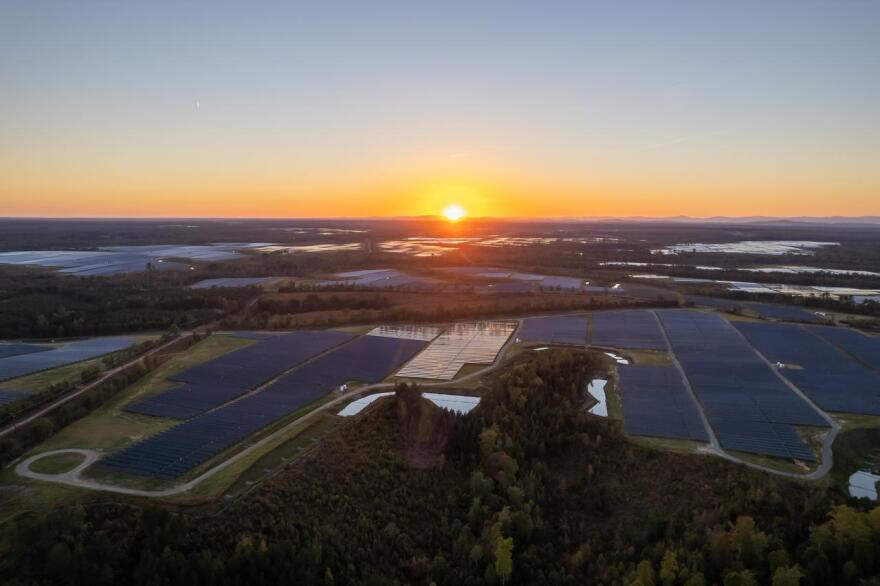When the Spotsylvania County Board of Supervisors held public hearings on plans to put 1.8 million solar panels on 6,000 acres of rural land, the neighbors were not happy. They testified at public hearings and raised unfounded fears.
“First off, I’d like to comment that all these people who think this is so wonderful should go buy the properties of everybody who is adjacent to this solar monster – because we don’t want their poisons!" said one woman.
“Nobody knows the health risks of this thing," said a man at the public hearing. "Who’s going to be responsible for the health effects of the people who live around these?”
“The noise pollution, the erosion concerns, the water consumption. Nobody wants to live next door to this!” cried another.
State Senator David Marsden says farmers in many parts of the state have resisted solar arrays because they’re associated with liberal politicians.
“It’s become ideological – like associated with the wrong political party," he explains, "Plus it’s difficult just like it was for the coal community to understand that the world was going in a different direction. It’s hard for agricultural communities driving by solar panels instead of cattle grazing or corn growing or soybeans. Human beings are like that. None of us like change.”

But at the largest array east of the Rockies, new voices are making the case for solar. The energy company AES has partnered with a local man – Bill Renaud – to graze 1,200 sheep between and beneath the panels.
“I went to three local farmers. I was able to convince them to trust us, to let them utilize this land. We were able to take their herds off their 200-300-acre homestead farms – put them on here at a zero- cost input," he recalls. "We cover mineral, feed, water, vets – we handle absolutely everything.”
The firm paid for portable fencing, and every few days Renaud and his team move the animals to a new field of grass. Land left behind is easier to mow – requiring less time and fuel.
“I know AES has an internal number of $250-$275 an acre to maintain it for a year," Renaud says. "We do it for $130.”
The sheep enjoy the shade of solar panels on a hot day, and their droppings fertilize the fields. If – after thirty years – the solar array is dismantled, Renaud says this will be rich farmland.

“This land is not getting developed. This is generating tax revenue. We’re putting money into local ag, local business, and the land is not going anywhere.”
Meanwhile, farmers who still own the sheep collect the full sale price at market, and Renaud says he’ll be donating a herd of 30 to the local chapter of Future Farmers of America. AES also plans to clear some scrubby land around the site for possible use by locals who raise cattle, crops and swine.
This report, provided by Virginia Public Radio, was made possible with support from the Virginia Education Association.


